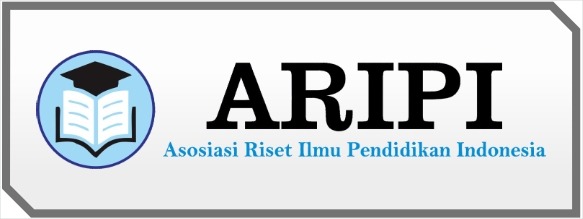The Development of a Digital-Based Educational Quality Ecosystem at SMK Bhineka Karawang
DOI:
https://doi.org/10.61194/education.v3i3.837Keywords:
Digital Education Ecosystem, Educational Quality, Vocational School, Digital TransformationAbstract
This study analyzes the development of a digital-based educational quality ecosystem at SMK Bhineka Karawang, Indonesia, focusing on enabling factors, challenges, and strategies to sustain digital transformation in vocational education. The research is driven by the urgency of educational digitalization in the industry 4.0 era, which demands the integration of leadership, teacher competence, infrastructure, policies, and school culture. A qualitative case study design was applied through in-depth interviews with eight informants (the principal, vocational teachers, and IT staff) selected purposively, supported by document analysis, and examined using thematic analysis. The findings highlight three key themes with measurable indicators: (1) leadership commitment and policy alignment, evident in digital planning documents and resource allocation; (2) teacher digital competence and continuous professional development, reflected in participation rates in digital training; and (3) infrastructure readiness and integration challenges, measured by facility availability and system interoperability. The results indicate that the success of a digital ecosystem requires a systemic approach that combines leadership vision, teacher empowerment, and well-coordinated infrastructure support. This study enriches the limited literature on digital transformation in Indonesian vocational schools by presenting an empirically grounded framework. It offers guidelines for practice, including leadership training in digital change management, differentiated teacher development programs, and sustainable infrastructure planning aligned with pedagogical goals.
References
Bass, B. M., & Avolio, B. J. (2019). Improving organizational effectiveness through transformational leadership. Sage Publications.
Chanias, S. (2017). Mastering Digital Transformation: The Path of a Financial Services Provider Towards a Digital Transformation Strategy. Proceedings of the 25th European Conference on Information Systems, ECIS 2017, 16–31.
Chetty, F. (2016). The effect of job satisfaction on employee well-being among administrative staff at the Durban.
Davies, R. S., & West, R. E. (2014). Technology integration in schools. Educational Technology Research and Development, 62(4), 483–507.
Ertmer, P. A., & Ottenbreit-Leftwich, A. T. (2010). Teacher technology change: How knowledge, confidence, beliefs, and culture intersect. Journal of Research on Technology in Education, 42(3), 255–284. DOI: https://doi.org/10.1080/15391523.2010.10782551
Fullan, M. (2013). The new meaning of educational change (4th ed.). Teachers College Press.
Gomes, E., Thomas, L., & Lopes, A. (2023). Green human resource management practices and employee well-being: A systematic review. Journal of Business Research, 150, 682–691. https://doi.org/10.1016/j.jbusres.2021.08.017 DOI: https://doi.org/10.1016/j.jbusres.2021.08.017
Green, F. (2010). Well-being, job satisfaction and labour mobility. Labour Economics, 17(6), 897–903. DOI: https://doi.org/10.1016/j.labeco.2010.04.002
Hair Jr, J. F., Hult, G. t. M., Ringle, C. M., & Sarstedt, M. (2018). Essentials of business research methods. Routledge.
Hasibuan, M. S. P. (2016). Manajemen sumber daya manusia (Revisi). PT Bumi Aksara.
Indices, D. J. S. (2022). PT Bumi Serpong Damai Tbk receives Cambridge IFA’s 3G award. https://arbsustain.com/
Iskandar, I., Hutagalung, D., & Adawiyah, R. (2019). The effect of job satisfaction and organizational commitment towards organizational citizenship behavior: A case study. Jurnal Ekonomi Bisnis dan Kewirausahaan, 8(3), 236–249. DOI: https://doi.org/10.26418/jebik.v8i3.35001
Jain, D., Vyas, P., & Rawat, G. (2023). The psychological role of green HRM in improving employee well-being and environmental sustainability. Journal for ReAttach Therapy and Developmental Diversities, 6(7s), 224–237.
Kimmons, R., Graham, C. R., West, R. E., & Morra, J. (2020). Technology integration coursework and finding meaning in pre-service teacher learning. TechTrends, 64, 770–780. https://doi.org/10.1007/s11528-020-004909
Mishra, P., & Koehler, M. J. (2006). Technological pedagogical content knowledge: A framework for teacher knowledge. Teachers College Record, 108(6), 1017–1054. DOI: https://doi.org/10.1177/016146810610800610
Nierenberg, B., Alexakis, G., Preziosi, R. C., & O’Neill, C. (2017). Workplace happiness: An empirical study on well-being and its relationship with organisational culture, leadership, and job satisfaction. International Leadership Journal, 9(3), 2–23.
O.E.C.D. (2021). Digital education outlook 2021: Pushing the frontiers with artificial intelligence, blockchain and robots. OECD Publishing. https://doi.org/10.1787/589b283f-en DOI: https://doi.org/10.1787/589b283f-en
Paillé, P., Chen, Y., Boiral, O., & Jin, J. (2014). The impact of human resource management on environmental performance: An employee-level study. Journal of Business Ethics, 121(3), 451–466. DOI: https://doi.org/10.1007/s10551-013-1732-0
Purba, B. (2019). Analisis pengaruh kesejahteraan karyawan terhadap semangat kerja karyawan pada PT. Asuransi Jiwasraya (Persero) Medan. Jurnal Manajemen dan Bisnis, 18(2), 150–162. DOI: https://doi.org/10.54367/jmb.v18i2.427
Putri, T., & Warsindah, L. (2021). Pengaruh Green Human Resources Management terhadap Job Satisfaction melalui Green Work Engagement pada industri manufaktur di Jakarta. Metrik Serial Humaniora dan Sains, 2(2), 77–83.
Qamar, F., Afshan, G., & Rana, S. A. (2023). Sustainable HRM and well-being: Systematic review and future research agenda. Management Review Quarterly, 1–51. DOI: https://doi.org/10.1007/s11301-023-00360-6
Raza, S. A., Shaukat, S., & Ahmed, W. (2021). Green HRM and employee attitude: The role of perceived organisational support. Journal of Business Research, 135, 629–634.
Renwick, D. W. S., Redman, T., & Maguire, S. (2013). Green human resource management: A review and research agenda. International Journal of Management Reviews, 15(1), 1–14. DOI: https://doi.org/10.1111/j.1468-2370.2011.00328.x
Sadida, N., & Fitria, N. (2019). Analisis kesejahteraan psikologis karyawan dan kualitas interaksi bawahan berdasarkan kepribadian atasan. Humanitas, 15(1). DOI: https://doi.org/10.26555/humanitas.v15i1.5328
Sharma, K., & Agarwal, F. (2021). Impact of green HRM practices on organisational commitment and job satisfaction. Wesleyan Journal of Research, 13(69), 21–28.
Sivapragasam, P., & Raya, R. P. (2018). HRM and employee engagement link: Mediating role of employee well-being. Global Business Review, 19(1), 147–161. DOI: https://doi.org/10.1177/0972150917713369
Tang, G., Chen, Y., Jiang, Y., Paille, P., & Jia, J. (2018). Green human resource management practices: Scale development and validity. Asia Pacific Journal of Human Resources, 56(1), 31–55. DOI: https://doi.org/10.1111/1744-7941.12147
Tuncer, H. B. (2019). The impact of HRM practices on employee well-being, job satisfaction and individual work performance.
Wang, V. C. X. (2017). Handbook of research on digital content, mobile learning, and technology integration models in teacher education (V. C. X. Wang, Ed.). IGI Global. https://doi.org/10.4018/978-1-5225-1856-3 DOI: https://doi.org/10.4018/978-1-5225-1856-3
Yin, R. K. (2018). Case study research and applications: Design and methods (6th ed.). Sage Publications.






